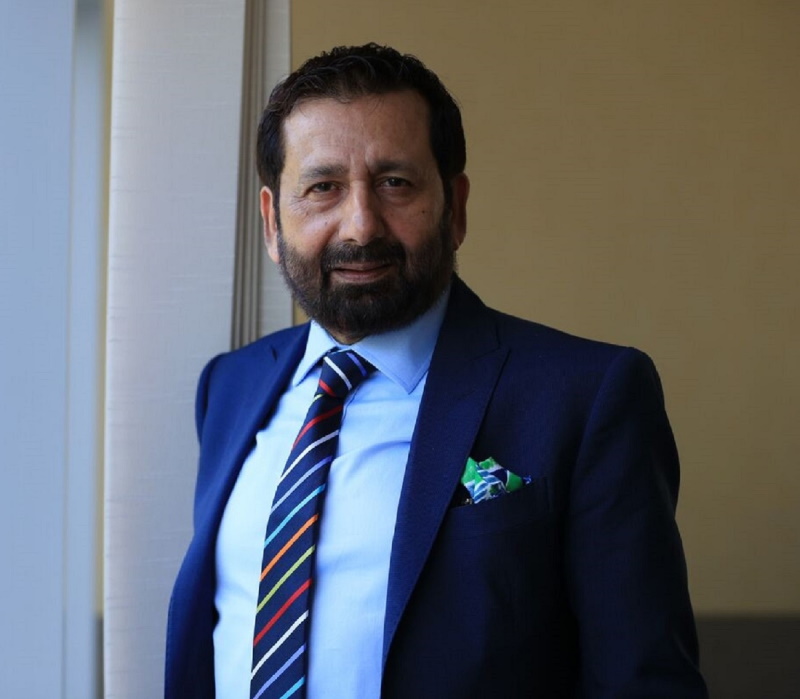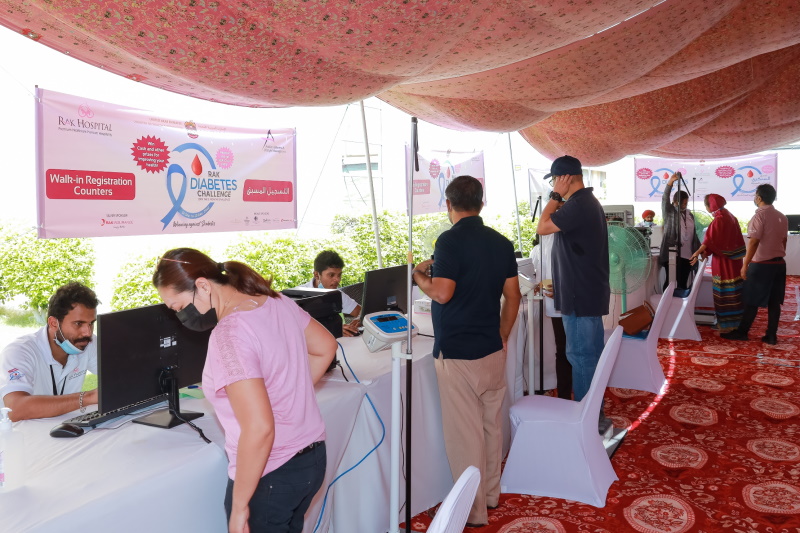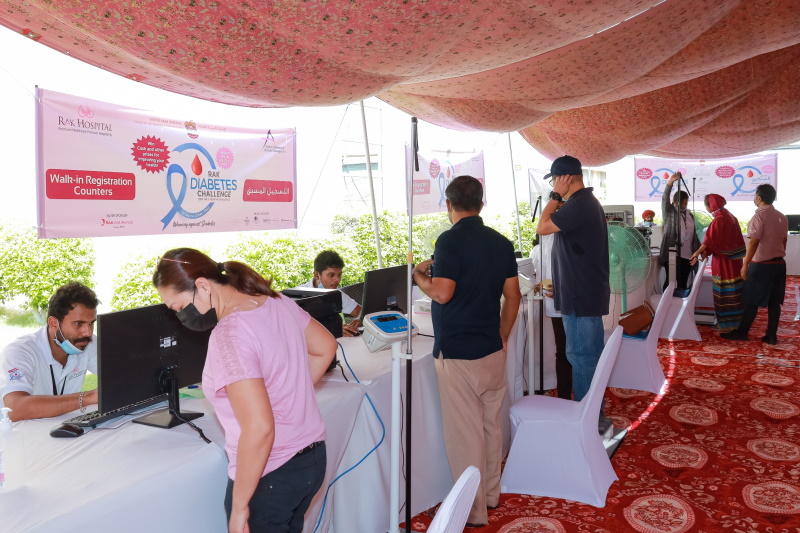
Over 3000 people enrol for the RAK Diabetes Challenge
Participants attend the first ‘Diabeat Webinar’ to learn about the diabetes prevention and management strategies
Losing 5-10 percent body weight can lower your risk of developing diabetes by 58 percent.
MENA region to see diabetic population rise by 87% by 2045
The 12-week community initiative, RAK Diabetes Challenge 2022 launched by RAK Hospital in association with the Ministry of Health and Prevention has seen over 3000 people register for the program. The initiative which aims to reduce the biomarkers of the disease, especially HbA1c levels and BMI amongst diabetics also conducted its first webinar titled ‘Winning against Diabetes’ where participants learnt about the disease, its symptoms, prevention and management strategies.

Dr Raza Siddiqui, Executive Director, RAK Hospital said, “Diabetes is increasing worldwide while the MENA region shows some alarming numbers as we expect a huge jump of 87% in the diabetic population from 73 million in 2021 to 136 million in 2045 as per the International Diabetes Federation 2021 data. Therefore, a challenge like this was much needed to create greater awareness about the disease and help prevent the complications of diabetes.
It must be noted though that type 2 diabetes is the most common with 90% of patients suffering from the condition. However, the good news is, it’s also the type where lifestyle intervention can actually reverse the disease in many cases.”
Stating further, Siddiqui said, “People from all across UAE have come forward and enrolled for the challenge and for the next three months, the RAK Hospital physicians, trainers and subject experts will be consistently guiding the contestants via weekly webinars, daily health tips and educative sessions, supporting them in implementing healthy lifestyle changes and management programs suitable for their individual requirements.”

People with diabetes have an increased risk of strokes, heart attacks, high blood pressure, kidney disease and blindness. If you are obese, you can reduce your risk of developing diabetes by eating a low-fat, low-sugar diet and exercising regularly. If you can lose 5-10 percent of your body weight, you will lower your risk of developing diabetes by 58 percent.
During the first weekly ‘Diabeat’ webinar scheduled to be held every Friday until the end of the challenge, Dr. Humam Sami Ali, Consultant Internal Medicine and Head of Department at RAK Hospital spoke about various aspects of diabetes, explaining and educating the participants about the disease and guiding them on the tools and strategies for prevention and effective management.
Speaking about testing for prediabetes and/or type 2 diabetes in asymptomatic people, he advised that it should be considered in adults of any age who are overweight or obese and have one or more additional risk factors for diabetes. For all people, testing should begin at the age of 45 years and if tests are normal, repeat testing carried out at a minimum of 3-year intervals is reasonable.
“People with diabetes are 2 to 3 times more likely to have a heart attack, stroke, or kidney disease. Therefore, the most important thing for them is to control their ABC; where A stand for HbA1c, B for Blood pressure and C for Cholesterol. If you have diabetes, controlling your blood pressure is just as important as controlling your blood glucose. High blood pressure puts you at risk for kidney disease, heart attack and stroke. Cholesterol is a substance found in the blood. LDL or “bad” cholesterol can build up and clog your blood vessels”, added Dr. Ali.
Even though, many people with diabetes aim for: A1c level < 7%, Blood pressure < 140/90 mmHg or lower in some cases and LDL cholesterol level <2.6 mmol/L (100 mg/dL) or lower. The individual ABC targets will depend on the severity of the disease, age and other associated health issues.
Talking about the A1C testing, Dr. Ali recommends performing the A1C test at least two times a year in patients who are meeting treatment goals and who have stable glycemic control. Quarterly test fare is advised for patients for whom the therapy has changed or who are not meeting glycemic goals. He believes Point-of-care testing for A1C provides the opportunity for more timely treatment changes.
"As against the 10% average of diabetics globally, the UAE figure is slightly higher at 11%. Diabetes is a malady related to affluence. The causes of diabetes, besides, endocrine dysfunction, includes family history, a rich overabundant carbohydrate diet, overweight & obesity, a sedentary & physically inactive life, & other such lifestyle factors.
The 3-month RAK Diabetes Challenge aims to not only reduce the blood sugar in participants but also in helping participants to lose excess body fat & weight, by modifying their lifestyles, through eating healthy low calorie diets & undertaking moderate exercise & physical activity daily, commented Prof. Adrian Kennedy, Chief Wellness Officer, Arabian Wellness & Lifestyle Management, the wellness arm of RAK Hospital.
The consequences of long-term diabetes and untreated diabetes range from circulatory problems, eye problems, nerve problems, kidney problems and also heart problems. Symptoms of diabetes include thirst, unexplained weight loss, and fatigue. Besides strict medical adherence, lifestyle changes including daily exercise, weight loss, & modification of diet were recommended by Dr Ali.


























